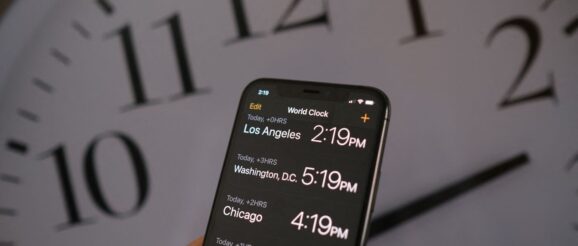Trump urges Congress to make daylight saving time permanent

President Trump is urging Congress to pass legislation that would make daylight saving time permanent — which, if enacted, would put an end to a longstanding debate over whether to change the time in the U.S. twice a year.
Both the House and Senate should “push hard for more Daylight at the end of a day,” the president wrote Friday morning on Truth Social.
“Very popular and, most importantly, no more changing of the clocks, a big inconvenience and, for our government, A VERY COSTLY EVENT!!!,” Trump also wrote.
The latest directive from Trump follows ongoing efforts in Congress to adopt daylight saving time — including the Sunshine Protection Act, which was reintroduced in the House and Senate by Florida Republicans Rep. Vern Buchanan and Sen. Rick Scott in January. Another Florida Republican, then-Sen. Marco Rubio, had previously championed the bill, first introducing it in 2018 and reintroducing it in 2021. The Senate passed the bill in 2022, but it never came to a vote in the House.

Every state observes daylight saving time except for two — Hawaii and Arizona, with the exception of the portion of Navajo Nation that’s in the state. U.S. territories American Samoa, Guam, Puerto Rico, the Virgin Islands and the Northern Mariana Islands also don’t change their clocks.
Trump, who has long been supportive of the change and tweeted in 2019 that making it permanent was “O.K. with me!,” appeared to soften his stance when he called it a “50/50 issue” in early March, three days before clocks moved an hour forward in most parts of the country.
“I assume people would like to have more light later, but some people want to have more light earlier because they don’t want to take their kids to school in the dark … A lot of people like it one way. A lot of people like it the other way,” he told reporters then in the Oval Office.
The issue was debated during a Senate hearing on Thursday, where Republican Sen. Ted Cruz from Texas called changing the clocks twice a year an “outdated and harmful practice.” Cruz also said while changing the clocks made sense in the early 20th century, advancement in technology has “drastically reduced the relative price of energy compared to the past.”
“When we take a closer look at the implications of changing the clocks, its impact on our economy, our health and our everyday lives, we can see that this practice is more than an annoyance,” Cruz, who is chairman of the U.S. Senate Committee on Commerce, Science, and Transportation. “The disruption to sleep patterns and the result in fatigue can have consequences on our productivity, mental health and well-being.”
Democratic Sen. Lisa Blunt Rochester from Delaware also said changing clocks twice has a negative impact on Americans and that “it’s time to figure this out.”

“The back and forth between daylight savings time and standard time needs to change and needs to stop,” she said. “We need to stop the clock. We need to find a solution and stick with it.”
While there is concern among sleep experts that switching the time biannually is not good for one’s health, some in the medical community also say a permanent daylight saving time might not be a good solution, either.
“The scientific and medical community really feel it’s very important for us to go to permanent standard time, which is much more aligned with the sun in the sky and so better for our overall health and well-being,” Johnson said.
